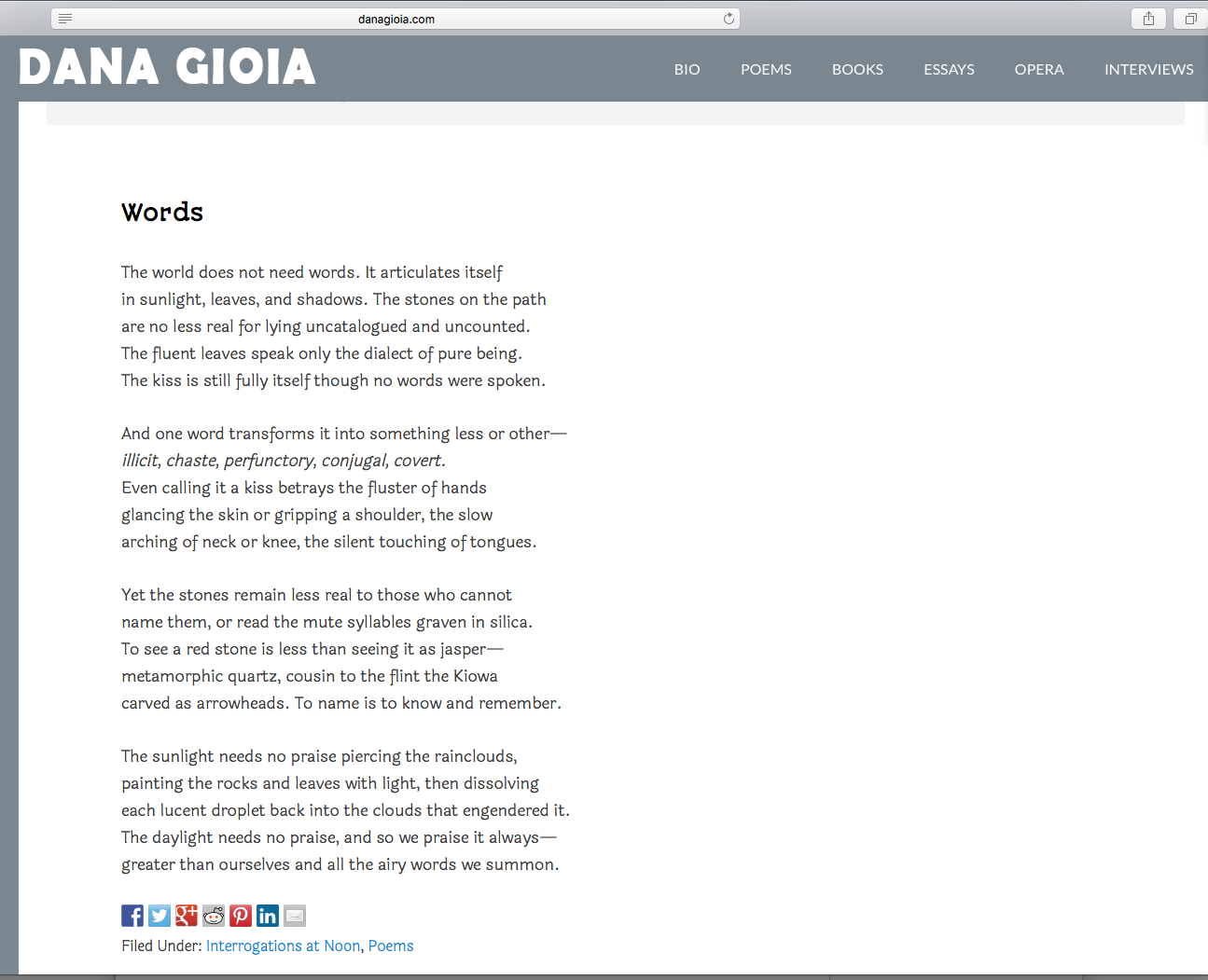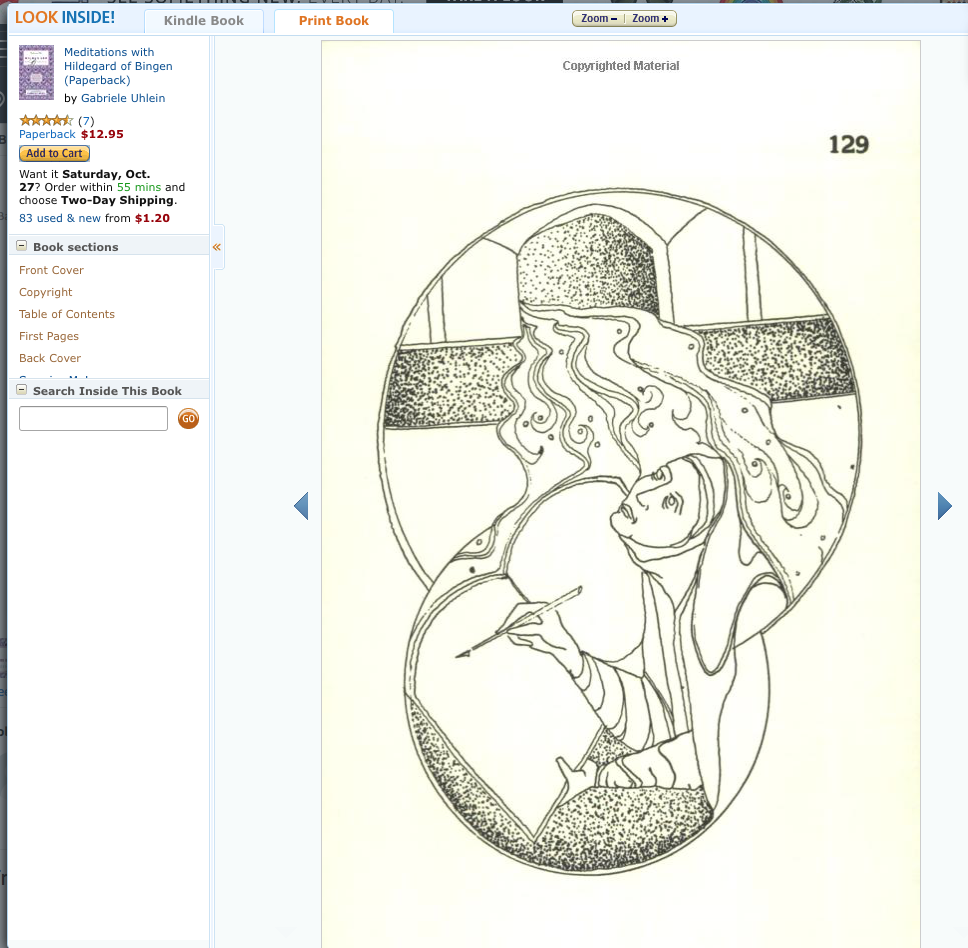This is part 3 of the series 8 Things Poets and Monastics Can Teach Us About Happiness; with 8 Poems to Make Life More Meaningful. For part 1 of the series, go here.
About words….
We think we know what words are—the spoken sounds and written letters we combine to form sentences to convey what we mean. Words carry on conversations, broadcast news, spread rumors, make promises, utter threats, express complex emotions, form ideals, formulate questions, make peace, build a better world, destroy reputations, crush hope, and declare war. Words are powerful.
Poets and monastics are word-centered people.
- Poets use words as tools for art making. They understand the complexity and multi-layered power of words to arouse human consciousness and creativity.
- Spiritual seekers of all traditions, including Benedictine monastics, mine spiritual writings for the illuminating wisdom that transcends time and cultures. In these writings, they discover the mysterious power of words to connect physical, visible elements of creation with invisible, spiritual realities. In other words, they experience how words make us whole-y.
8 things poets and monastics know about the power of words
1. Words enable consciousness—
Consider the story of the child Helen Keller’s awakening consciousness when her tutor, Annie Sullivan, led her to connect the spelled word-symbol w-a-t-e-r to the actual cold liquid something spilling from the well pump, filling the pitcher, splashing and cooling her skin. Describing this scene in her biography, Ms. Keller wrote:
“As the cool stream gushed over one hand she spelled into the other the word water, first slowly, then rapidly. I stood still, my whole attention fixed upon the motions of her fingers. Suddenly I felt a misty consciousness as of something forgotten–-a thrill of returning thought; and somehow the mystery of language was revealed to me. I knew then that ‘w-a-t-e-r’ meant the wonderful cool something that was flowing over my hand. That living word awakened my soul, gave it light, hope, joy, set it free! There were barriers still, it is true, but barriers that could in time be swept away.”
And here is Dana Gioia’s poem “Word” which speaks to the human need for words, which are the facilitators of human knowledge and human memory.

If it is true that words are makers of consciousness—and I believe it is true—then to allow our understanding of words to remain spiritless and superficial is to remain in a listless state of semi-consciousness.
2. Words enable compassion—
in a review of Sarah Smarsh’s Heartland: a Memoir of Working Hard and Being Broke in the Richest Country on Earth, Gracy Olmstead explains how books like this—stories of human experience told in in words carefully chosen and skillfully ordered—have the inherent power to change a culture. Words can be keys to locked entrances, opening eyes of people blind to injustice, opening hearts of people indifferent to caring. Words, in other words, can create transformative vision. They can enable the kind of compassion that insists on finding a better, more peaceful and just, way to confront problems.
3. The ability to communicate through words makes us human + 4 more reasons words matter
Gracy Olmstead is a thoughtful journalist who wrote, “Any monkey can take a picture with a smartphone. Point and click. But the ability to encapsulate a moment in nouns and verbs, adjectives and adverbs – only a human can do that.” Here’s a bullet-point list of her reasoning.:
#4. Words give expression
#5. Word give us the full story: its context background, beginning, and ending.
#6. Words connect us to the other.
#7. Words awaken our imagination.
Note that Ms. Olmstead writes in response to a recent article by Ali Eteraz, who claims that we are probably living in a post-literate, image-centric society “where the ability to communicate doesn’t require anything more than rudimentary reading and writing…sounds and pictures can do the job just as well…perhaps better.” This rebuttal shoots down the premise that images can communicate “just as well [and] perhaps better” than words.
If you want to ponder what words contribute to our world and the our lives, take fifteen minutes to read The War on Wordsmiths by Ali Eteraz and 5 Reasons Why Words Matter by Gracy Olmstead.
8. Utlimately, words manifest the being of all creation
Hildegard of Bingen was an 11th Century Benedictine whose art, music, writings, and poetry are repositories of consciousness, compassion, and ageless wisdom. In the introduction to her Meditations with Hildegard of Bingen, Gabriele Uhlein writes of Hildegard’s conception of “veriditas” — the verdancy, the “greening” power of God, as the “vital force that embraces creation and the “pattern for all good” (p 17).
On page 49, Ms. Uhlein’s translation of Hildegard’s writing links the concept of veriditas, the “greening,” creative power, directly to “the WORD”…
God’s WORD is in all creation,
visible and invisible….
…
This WORD manifests in every creature.
Now this is how the spirit is in the
flesh–the WORD is indivisible from GOD.

This is the mystery inherent in the creation story of Genesis, in which God speaks the world into being, establishing the word as the life force of all creation. The fall of creation, instigated by humanity’s loss of innocence through the knowledge of good and evil, introduced the power of destruction, of decay and death. This is when the word also assumed dualistic power. As Nobel Laureate Heinrich Böll famously said, “Words kill; words heal.” (Worte toten; Worte heilen.)
Words matter; we should choose to use words wisely
Through an inherent power to invoke consciousness, awaken compassion, contain knowledge and memory, and embody humaneness, words create being. Words have power—to heal, restore, and renew, but also to wound, destroy and kill.
The poets and monastics who respect and reverence words, do so with an intention to understand and handle word-power so the effect of their words in the world will be beneficial.
Let not our words desensitize, be hurtful, be cruel, or grind our humanity down to the lowest common denominator of our animalistic instincts. Instead,
May our words awaken, empower, and advance what is most noble in us and what is most lovely and praiseworthy in the world.
The next article in this series explores how the cultivation of silence facilitates our comprehension of the immense power of words, and aids our acquisition of the self-restraint that limits the harm our thoughtless, careless, spiteful, or malicious words can cause.
